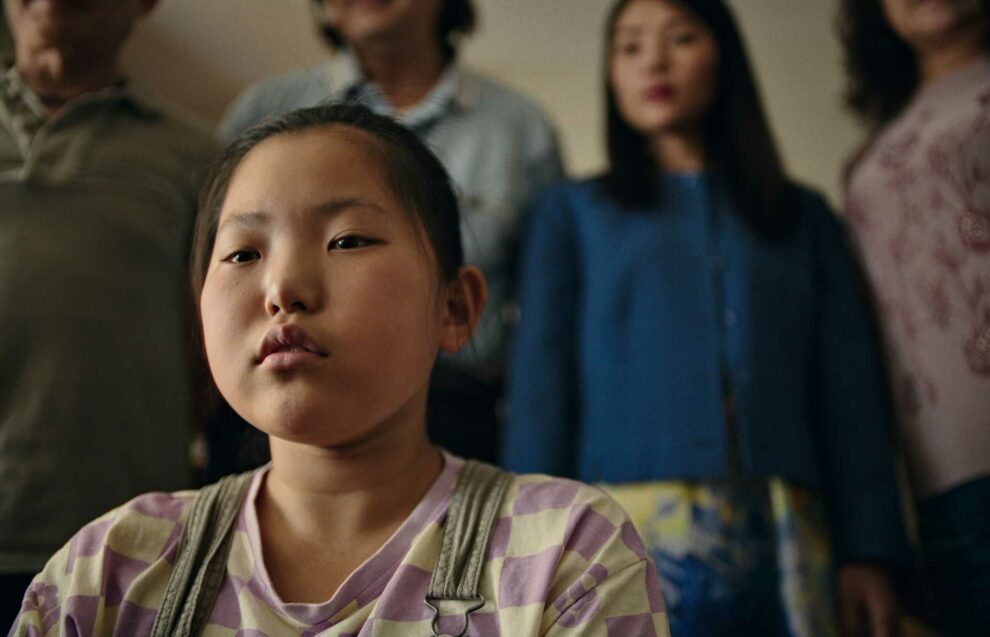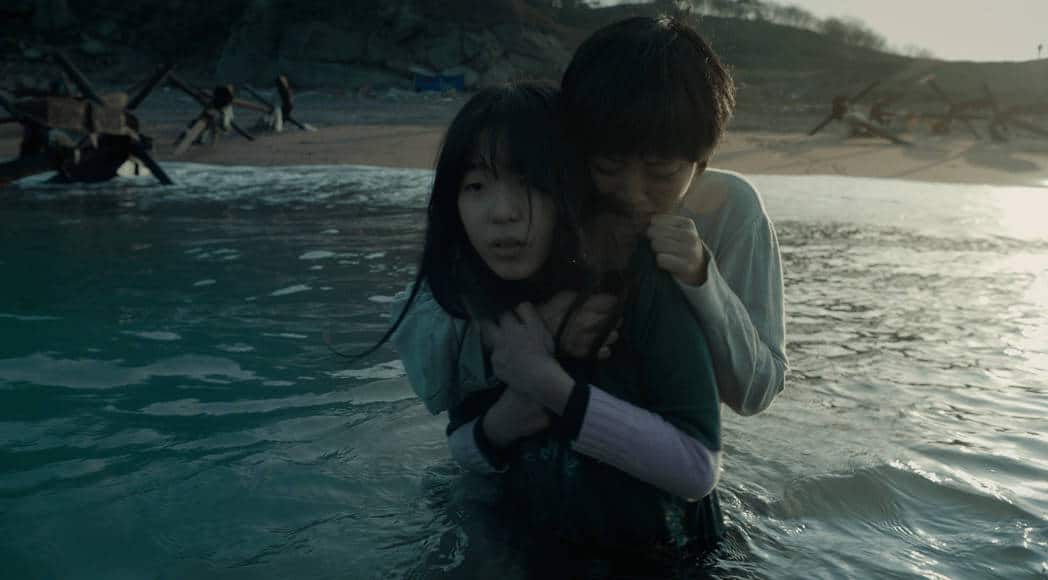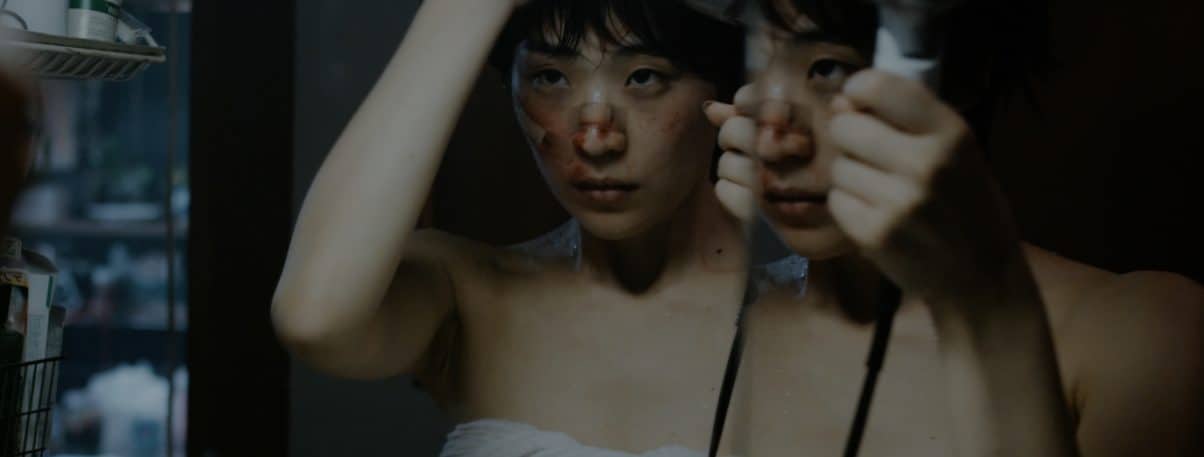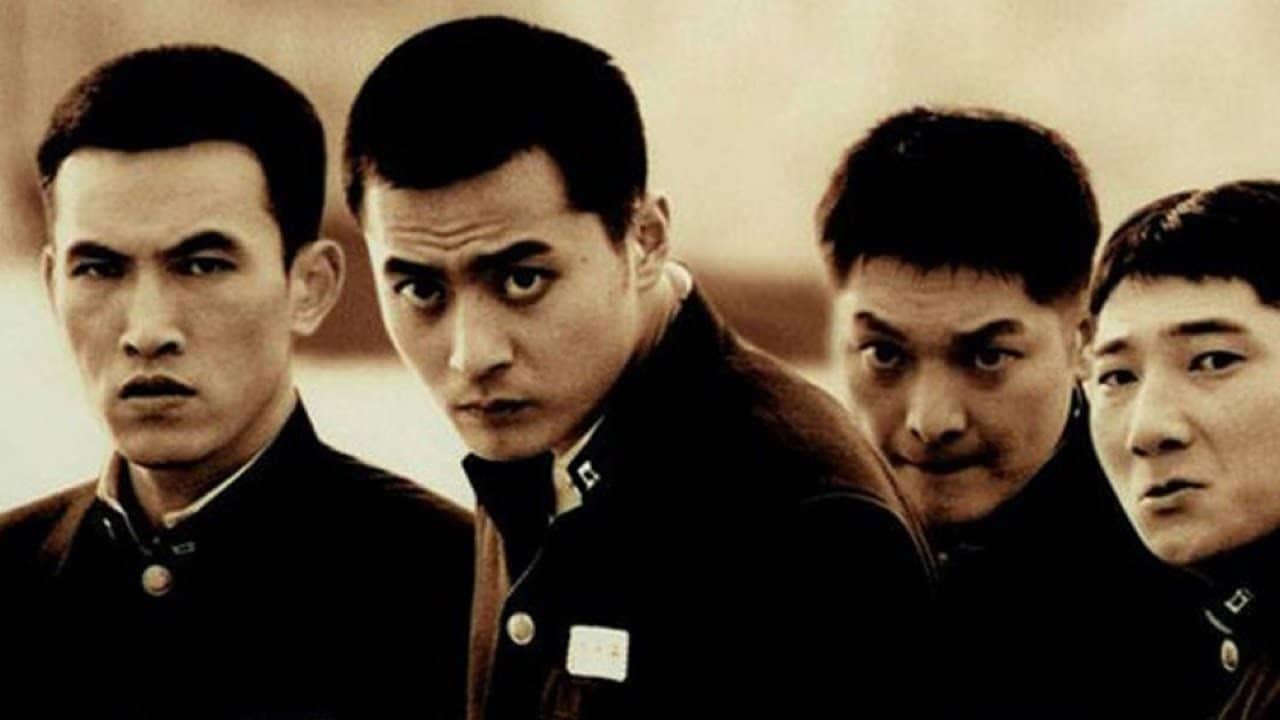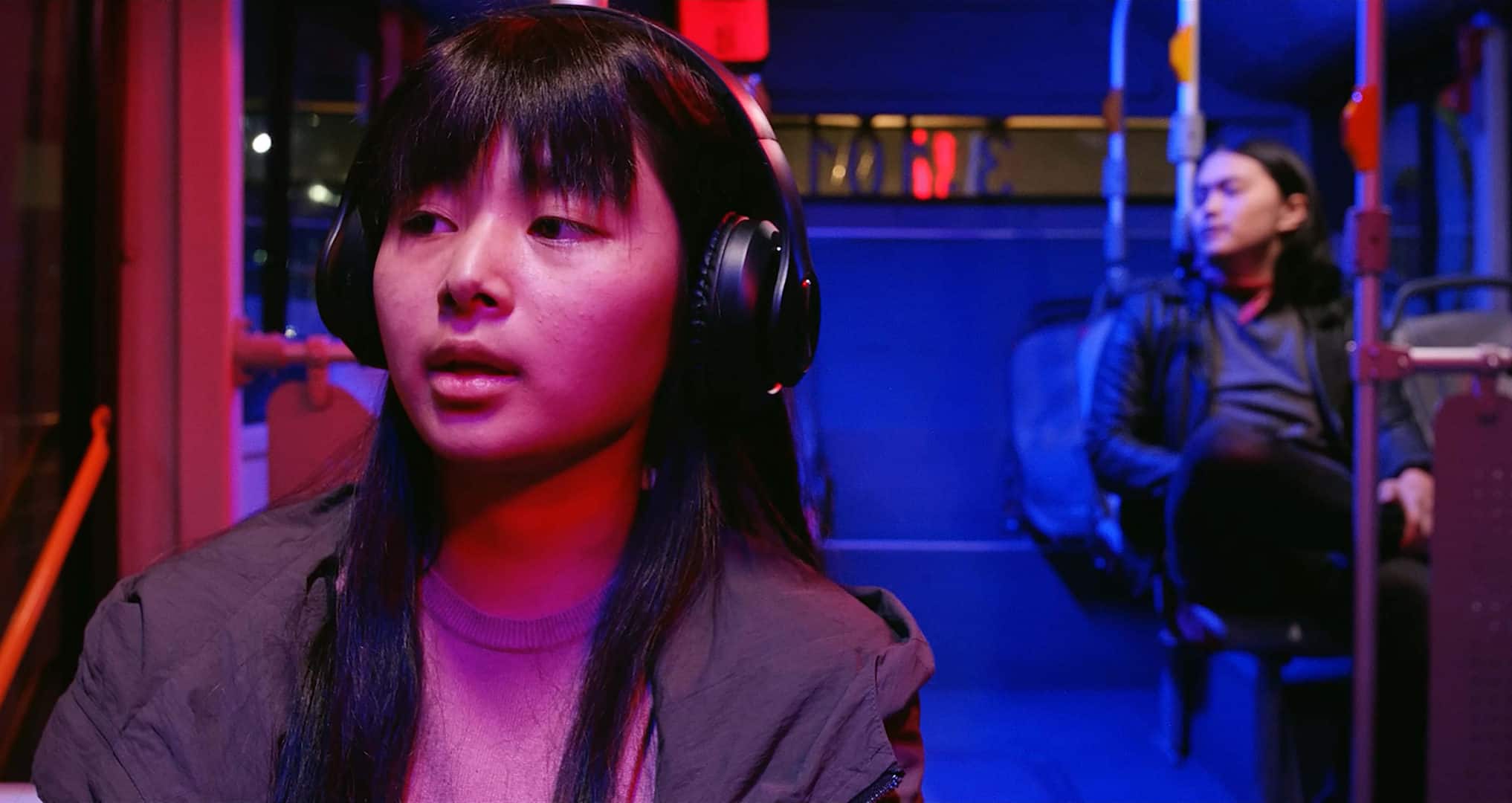From the director's statement: For a very long time, Chinese families were banned to test the gender of their unborn baby, because many of them will take an abortion over having a girl as their only child. It felt like I might not be born if they knew I was a girl. As the One Child policy loosens in the 2010s, many Chinese families chose to have another child, and the majority of those born were boys. An entire generation of Chinese girls had a very young baby brother when they were teenagers or adults. Many of these girls were expected to take care of their baby brothers for the rest of their lives. “A Roadside Banquet” is a story about them, and every child who seek the unconditional love that their parents can no longer give.
A Roadside Banquet is screening at New Filmmakers LA

The film begins with the red color dominating, as we watch a young girl taking care of her younger brother. A small caress with her hand and her effort to make him laugh in various ways highlight her feelings for him. It seems that the boy's name is Di and that it's his birthday. Mai, the girl, shares the joy of the people invited, toasting with her soda with them. Eventually, her beautiful aunt, Xin, appears, with both of them being equally happy to see each other. While everyone is playing with the baby, Mai, who is evidently somewhat overweight (as her aunt's teasing highlights) keeps eating, at least until she decides to show to everyone her new song, in a desperate effort to draw some attention from the baby to her.
Mai is evidently a star in the making, but the impact of her performance lasts only for a moment. Later on, Mai plays with her cousins, with the three of them talking about which uncle is the most dependable. Mai's mentality is highlighted quite eloquently here as much as the mentality of the people around her regarding the ‘hierarchy' between her and the baby. Eventually, everyone sit on the table to eat. The comments about her gender continue in the most insensitive way, evidently having an impact on Mai, with her look towards her dad being rather accusatory. Eventually, something truly surreal happens.
Through both the actually story and symbolism, with the parallel between the duster and Mai being repeatedly palpable, Peiqi Weng makes a rather pointed comment regarding the place of women in Chinese society. The way Mai is repeatedly ignored by essentially everyone, in favor of her baby brother, and the way she identifies with the duster, which is eventually thrown away, highlights this comment in the most eloquent fashion. In that fashion, the drama here is both meaningful and entertaining, with the scene where the baby chooses being its apogee.
Even this scene, however, stresses the aforementioned comment, even if the director tries to induce the whole thing with an optimistic message: even if her parents do not care that much for her, her brother realizes that she cares about him and returns the sentiment in the purest fashion. In a secondary comment, the remarks Mai hears about her weight border on racism, even more so considering that she is just a very young girl, in an aspect that actually furthers the impact of the main comment: if being a girl was not enough, she is also obese.

DP Tianyi Liu captures the small nuances, looks, and words that shape the behavior of the protagonists with precision and realism, with the focus on Mai working quite well, since Sarah Zhai is exceptional in the role. Particularly the look she gives her father when she learns of his reaction upon her birth, will definitely stay on the mind of any viewer. To return to the visuals, the coloring of the film is also excellent, resulting in a quality of images rarely seen on such short films. Christine Ho's editing results in a relatively fast pace that allows the director to make her comments without rushing, while giving a very pleasant rhythm to the whole thing. Lastly, the surrealistic scene is also bound to stay on the mind of any viewer, as all the traits of the short come together in the best way in the particular sequence.
“A Roadside Banquet” is an excellent short which manages to present its comment eloquently, through an impressive visual package, while remaining entertaining and meaningful from beginning to end.


